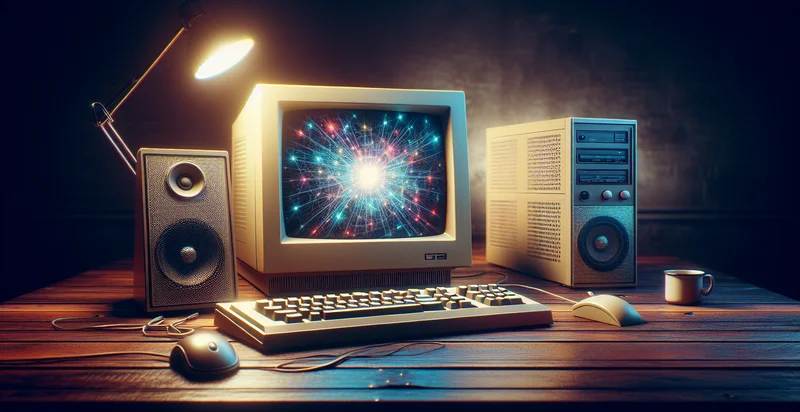Identify if desktop is on
using AI
Below is a free classifier to identify if desktop is on. Just upload your image, and our AI will predict if the device is a desktop - in just seconds.


Contact us for API access
Or, use Nyckel to build highly-accurate custom classifiers in just minutes. No PhD required.
Get started
import nyckel
credentials = nyckel.Credentials("YOUR_CLIENT_ID", "YOUR_CLIENT_SECRET")
nyckel.invoke("if-desktop-is-on", "your_image_url", credentials)
fetch('https://www.nyckel.com/v1/functions/if-desktop-is-on/invoke', {
method: 'POST',
headers: {
'Authorization': 'Bearer ' + 'YOUR_BEARER_TOKEN',
'Content-Type': 'application/json',
},
body: JSON.stringify(
{"data": "your_image_url"}
)
})
.then(response => response.json())
.then(data => console.log(data));
curl -X POST \
-H "Content-Type: application/json" \
-H "Authorization: Bearer YOUR_BEARER_TOKEN" \
-d '{"data": "your_image_url"}' \
https://www.nyckel.com/v1/functions/if-desktop-is-on/invoke
How this classifier works
To start, upload your image. Our AI tool will then predict if the device is a desktop.
This pretrained image model uses a Nyckel-created dataset and has 2 labels, including Desktop Off and Desktop On.
We'll also show a confidence score (the higher the number, the more confident the AI model is around if the device is a desktop).
Whether you're just curious or building if desktop is on detection into your application, we hope our classifier proves helpful.
Related Classifiers
Need to identify if desktop is on at scale?
Get API or Zapier access to this classifier for free. It's perfect for:
- Energy Management: Corporations can utilize the 'is desktop on' identifier to monitor energy consumption in real-time. This allows businesses to make informed decisions on power saving, optimizing operational hours, and reducing energy costs.
- Remote Workspace Monitoring: Companies with remote employees can use this function to ensure that workstations are actively being used. By identifying whether desktops are on, businesses can assess employee engagement and productivity levels, potentially guiding resource allocation.
- IT Asset Management: The identifier can serve as a tool for managing IT assets efficiently. By monitoring which desktops are currently switched on, IT departments can streamline maintenance schedules and plan upgrades based on usage patterns.
- Security Compliance: Organizations can leverage this function to strengthen their security protocols. By ensuring that desktops are powered on and operational during scheduled working hours, businesses can reduce the risks of unauthorized access or data breaches due to unattended machines.
- Customer Support Optimization: Customer support centers can track whether employee desktops are on to optimize response time. This ensures that agents are accessible and ready to assist customers, thereby improving service level agreements and enhancing customer satisfaction.
- Workforce Analytics: Businesses can collect data on desktop usage to analyze workforce patterns. Understanding when and how long desktops are on can inform scheduling practices and help identify opportunities for flexible work arrangements.
- Remote Troubleshooting: IT support teams can use the identifier to confirm whether user desktops are active before initiating remote troubleshooting. This helps streamline the support process, reducing unnecessary waiting times and improving overall service efficiency.


